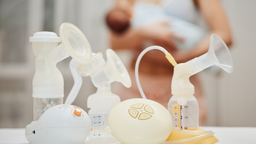May is National Maternal Depression Awareness Month, and with 15-20% of mothers suffering from some kind of postpartum mood disorder (depression, anxiety, post-traumatic stress), we thought we’d present a few answers to common questions. We posed some questions about postpartum depression and other postpartum mood disorders to Annette Cycon, LICSW and founder and director of training for MotherWoman:
Can you describe the range of postpartum emotional difficulties that mothers sometimes experience?
Becoming a mother is a wonderful but difficult experience. Physically we have to make the adjustment from pregnancy through birth, to recovery and lactation. Even adoptive mothers, and fathers experience enormous adjustment to new parenthood. Lack of sleep and revolving one’s life around the inexplicable needs of a tiny baby is exhausting physically, mentally, emotionally, relationally and spiritually. It is the steepest learning curve of our lifetime. Therefore it is no surprise that all parents experience a roller coaster of feelings from elation and tears of joy, to confusion, anxiety, fear and sadness. There is a spectrum of emotional experiences that mothers can have. Most are normal and do not last, some last longer and feel worse like depression or anxiety that just doesn’t go away. A rare group of mothers experience a level of disorientation that is not safe.
How can moms tell if what they’re experiencing is the baby blues or something more serious?
It’s probably the baby blues if feelings of sadness do not last all day everyday, if feelings of sadness are balanced by experiences of joy and ease, especially if the mother is getting the right support. Baby blues should diminish within a few weeks postpartum. If mom is feeling sad all day everyday, despair, hopeless, ambivalent connection to her baby, disconnected to others, panic attacks, inability to sleep, etc, she may be experiencing postpartum depression or anxiety.
Where can moms turn if they’re experiencing postpartum emotional difficulties?
Support groups where she can talk with other new moms are very helpful. Postpartum support groups that specialize in the emotional experience of the mother will provide the most help if a mother is struggling, so she knows she is not alone and she can get the specialized education and support she needs and deserves. Talking with her OB or midwife and being honest about how she is feeling, and talking with therapists who specialize in Postpartum Emotional Complications is very helpful. There are websites like Postpartum Support International that are helpful and mommy blogs for moms who are reaching out for support that way.



